Detoxing from heroin is immensely difficult. This is due in large part to the power and addictive hold of the substance. Those who use it consistently will more than likely become dependent or worse: addicted. These complications make it difficult to quit, no matter how bad a person wants to. The best way to combat heroin addiction is through a medical detox network.
Detox allows a person to be weened off drugs with the help of medication. Many people use detox as a means of addiction recovery. Of these individuals, a great deal of them are addicted to heroin.
Table of Contents
ToggleWhat Happens When Someone Detoxes from Heroin?
Quitting heroin through detox can have a massive impact on the way a person feels. When a person does this, they’ll notice a plethora of changes to their body and mind. However, like anything done successfully, this takes time. Once the brain recognizes that a person is no longer receiving those chemical signals, the body fights back. Without detox and close, professional medical supervision, a withdrawal phase will ensue. This looks like the following:
- 6-12 hours: withdrawal begins
- 1-3 days: withdrawal symptoms peak
- 1 week: withdrawal symptoms subside
What Does the Withdrawal Phase Look Like?
Some symptoms of withdrawal include the following:
- Nausea
- Abdominal pain
- Dizziness
- Vertigo
- Sweating
- Chills
- Shaking
- Seizures
- Fever
- Irritability
- Nervousness
- Agitation
- Muscle Spasms
People respond to withdrawal symptoms in different ways. These symptoms can be influenced by a variety of factors. This could include the length of use, the volume of usage, or time spent apart from the substance. If a person has used heroin for an extended period, their body and mind may have grown dependent on the substance. If this is the case, the symptoms of withdrawal may very well last longer than they usually would.
The degree to which a person feels and responds to withdrawal symptoms vary depending on the individual in question. Some people feel a greater majority of the withdrawal symptoms listed above; others do not. Sometimes, those experiencing withdrawals feel the symptoms more intensely for a day, while others’ pain is spread out over a matter of a week.
How Long Will I Experience Heroin Withdrawal?
 When a person stops taking heroin, it leaves the body within a few days. That’s not to say you won’t experience heroin withdrawal symptoms, but at the very least, the heroin will leave your system. But how does this work? In a nutshell, the body’s digestive system metabolizes heroin and removes it over the course of a few days on average. However, there are sometimes that a person takes a large volume on a consistent basis.
When a person stops taking heroin, it leaves the body within a few days. That’s not to say you won’t experience heroin withdrawal symptoms, but at the very least, the heroin will leave your system. But how does this work? In a nutshell, the body’s digestive system metabolizes heroin and removes it over the course of a few days on average. However, there are sometimes that a person takes a large volume on a consistent basis.
When someone takes a large amount of heroin on a more consistent basis, their withdrawal symptoms may increase or intensify. However, when it comes to ridding heroin from a person’s body it also depends on how healthy they are. Not only that, but the way their body metabolizes substances is also a big factor.
The thing about heroin withdrawal is that it will continue to persist until your whole body is forced to move on. For most individuals, this is extremely difficult, and that’s okay. Take comfort in the fact that you’re not alone. There are countless others who are suffering from withdrawal. It isn’t fair; you just want to get better. At Magnolia City Detox, we want you to win the battle of withdrawal. This is why we offer the utmost in medically assisted treatment. Your story is important to us, and we want to help that continue.
How Do I Begin Recovering from Heroin Addiction?
The most frustrating part of detox is that it takes so much time to overcome. Oftentimes, even with the utmost in professional medicine, detox is a trial of endurance. When detoxing from heroin abuse, it’s best to find a recovery program that meets your needs as a unique individual. Rehab helps bring the brain back to a healthy place. Developing healthy habits rather than engaging in destructive coping mechanisms is paramount in recovery. Ultimately, avoiding relapse in any way possible is imperative.
There are many different programs that help a person recover from heroin addiction. These include the following:
- 12-step programs like narcotics or alcoholics anonymous
- Individual therapy
- Medically assisted detox
- Cognitive-behavioral therapy
- Dialectical behavioral therapy
- Dual diagnosis
Treatment for Heroin Addiction
For those who suffer from heroin withdrawal, it is imperative to seek treatment. Getting through it cold turkey is dangerous and could result in relapse. There are many methods of treatment for heroin withdrawal that include the following:
- Inpatient treatment
- Outpatient treatment
- Medically assisted detox
- Therapy
Treatment is meant to be individualized. It is imperative that when somebody is seeking treatment, their evaluated for their unique needs. Everybody has a unique story; there’s not one person with the same exact story or experience as another. Different people have different needs whether it’s chemical or through their surrounding environment in their formative years. There is no cookie-cutter treatment method, and treatment should always reflect that.
What is Inpatient Treatment for Heroin Abuse?
Inpatient residential treatment is a method of care intended for those who suffer from more severe forms of addiction. Patients who participate stay anywhere from 28 days to 6 months in a treatment facility. The idea is that they have little interaction with the outside world. This allows them to come off of drugs with the supervision of professional medical personnel. When it comes to the kinds of activities a person participates in daily, it depends on the individual.
Some of those who are in treatment may be more successful in group therapy sessions; others may be more inclined to succeed in individual therapy. Either way, each person has 10 (or more) hours of weekly therapy in inpatient treatment. In addition to this, each patient has a bed, room, and meals provided for them daily.
What is Outpatient Treatment for Heroin Abuse?
Outpatient treatment is a method of care that lasts anywhere from 3 months to over a year. Those who participate are usually suffering from milder forms of addiction. If they aren’t suffering from a mild addiction, it is possible that they have participated in an inpatient rehab before. Oftentimes, people who have completed inpatient treatment need a stepping stone between inpatient treatment and the outside world.
Outpatient treatment gives people anywhere from 10-12 hours a week of therapy/counseling options. Not only that, but those who participate don’t have to stay at the treatment facility overnight. Those who are involved in outpatient rehab for heroin addiction have the ability to work during the day; usually, those who do this make time for their treatment and then work as they see fit. This is a great way to transition between the treatment facility and the world outside treatment. However, it is imperative that those who participate in outpatient treatment make their sobriety a priority. Otherwise, the chance of relapse will increase, making the pursuit of sobriety even more difficult.
What is Medically Assisted Treatment for Heroin Abuse?
Medically assisted treatment is a method of care that helps those suffering from withdrawal. This is especially relevant for those experiencing heroin withdrawal. Some symptoms of withdrawal that qualify for detox may include the following:
- Vomiting
- Nausea
- Chills
- Fever
- Sweating
- Irritability
- Mood Swings
For those who are experiencing withdrawal symptoms like those listed above, it is imperative that they seek treatment. Most people will try and quit using substances cold turkey, but this isn’t the wisest course of action. While it may work for some, it may lead others toward destructive relapse. Medically assisted detox allows those participating to be overseen by medical professionals while receiving treatment. In this realm of care, treatment includes providing patients with medication that allows them to be weened off of drugs or alcohol more comfortably.
Therapy Options for Heroin Addiction
Therapy is a method of treatment that allows those participating to disclose their thoughts and emotions to trained professionals. When it comes to severe addiction, some therapy options may include cognitive behavioral therapy or dialectical behavioral therapy. These two options look into a person’s whole being, evaluating who they are and why they make the decisions they do. All in all, therapy helps those in treatment to get the help they need in a caring environment of self-discovery.
Don’t Hesitate: Call Magnolia City Detox Today to Start Your Journey
 Heroin detox is difficult. Getting over an addiction, no matter what the substance is, can be disheartening at times. However, there’s nothing more important than being free from the grip of substance use disorder. This is especially true when it comes to heroin withdrawal. At Magnolia City Detox, we have resources available to help you with your addiction. Ultimately, our goal is to evaluate and treat you as an individual first. Everybody has their own unique needs; there is no one-size-fits-all method for the treatment of addiction.
Heroin detox is difficult. Getting over an addiction, no matter what the substance is, can be disheartening at times. However, there’s nothing more important than being free from the grip of substance use disorder. This is especially true when it comes to heroin withdrawal. At Magnolia City Detox, we have resources available to help you with your addiction. Ultimately, our goal is to evaluate and treat you as an individual first. Everybody has their own unique needs; there is no one-size-fits-all method for the treatment of addiction.
If you or a loved one are suffering from heroin withdrawal or addiction and would like to find out more, you can contact us here.




















